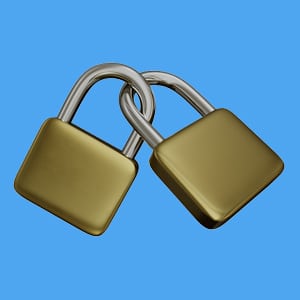The availability of the internet has changed the way most things work. Nowadays, you don’t have to be at a specific location or premise to get things done. With the internet, almost every task can be done remotely. Digital nomads have taken this opportunity to enhance their productivity at no extra costs while maintaining their flexibility and freedom. For instance, digital nomads such as freelancers can work from anywhere.
 Security risks
Security risks
Digital nomads almost face every cybersecurity risk and threat in their day to day activities. Unlike office workers, they don’t enjoy corporate security advantages provided at the office such as firewalls, dedicated security software, and other safeguards. Without these safety mechanisms to protect them, digital nomads face a greater risk of internet threats. Since they deal with a lot of sensitive information, its necessary for digital nomads to protect themselves from cyber threats. Here is how;
Regular software updates
If you are a digital nomad, always ensure you update all your devices as soon as possible when the updates become available. These updates not only bring new features and performance improvements but also, they contain patches that fix various security vulnerabilities and other bugs.
Encrypt your info and your devices
Every recent device can encrypt the information it stores. Also, the device can encrypt itself. Encryptions render your data unreadable to people who don’t have the key or who are not allowed to see your data. You can also invest in other hardware and software that offer encryption services.
 Use strong passwords and 2-factor authentication (2FA)
Use strong passwords and 2-factor authentication (2FA)
Always password protects your devices and accounts. A strong password is secure and uncrackable. Additionally, use different passwords for your various devices and account. By doing this, you minimize the risk of all your devices/accounts being compromised. You can also get a password manager; strong passwords are not easy to cram. For more security, couple your strong passwords with 2FA if it’s available. 2FA verifies the identity of the password holder and uses something only the person who set the 2FA knows. For instance, when signing into most accounts, a user gets a text code via his/her smartphone which is used to complete the sign in process.
Use encrypted sites
When surfing the internet or accessing a particular service, as a digital nomad always ensure the site is HTTPS and not HTTP. You can know this by looking at the URL bar. HTTPS sites are secure since they are encrypted. This ensures any information you enter onto the sites is not visible to prying eyes.
Use anti-theft services.
Smartphones and tablets/iPads are often used to accomplish most of the tasks that don’t require a bigger screen. This means they store a lot of data, some of which is confidential and sensitive. Since these devices are portable, it is easier for them to be misplaced or get snatched. To still recover your device, you need to enable antitheft services before you get into that awful scenario. Apple devices use Find my iPhone whereas Android has to Find my Device. These services can help you recover your device, and if that’s not possible, they can erase your data remotely.
 Use a VPN
Use a VPN
A VPN is helpful in many situations including when using public WIFI. A VPN offers security and privacy services by encrypting your internet traffic. This ensures your data is safe from prying eyes, and not useful to attackers if they intercept it through man-in-the-middle attacks. For privacy, a VPN assigns you a virtual IP address depending on the server you connect to. Besides security, you get to enjoy other VPN benefits such as gaining access to restricted content.
Here are other additional tips; avoid public WIFI if necessary, stay away from public computers, always do a regular back up of your data and carry a secure USB flash drive.

 Security risks
Security risks Use strong passwords and 2-factor authentication (2FA)
Use strong passwords and 2-factor authentication (2FA) Use a VPN
Use a VPN

